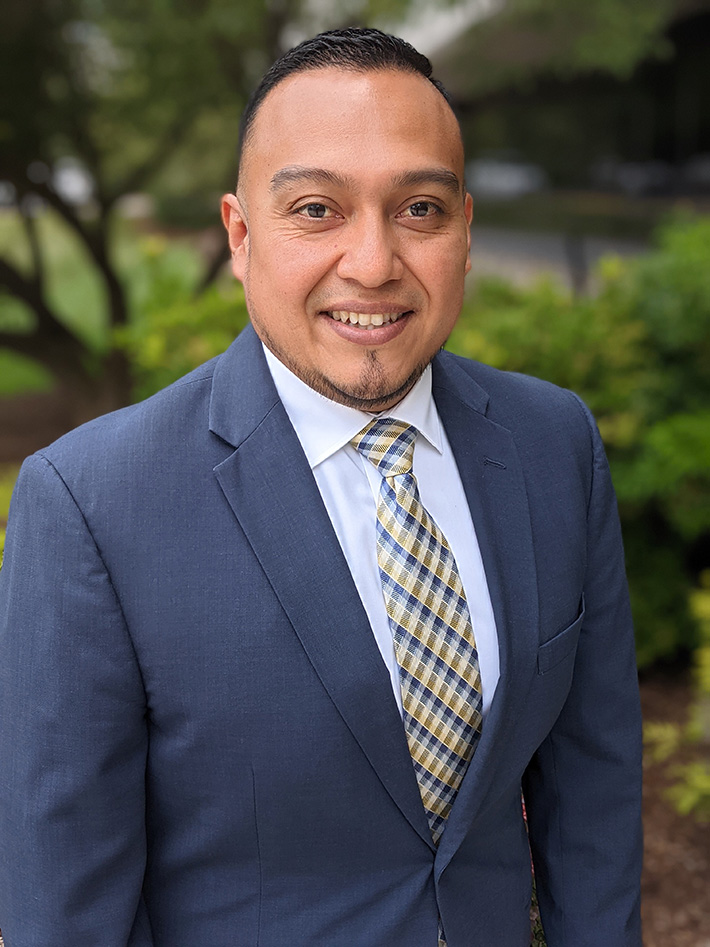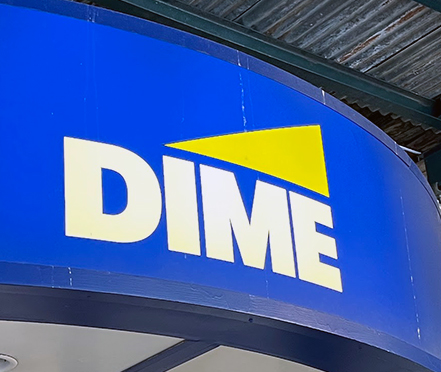The Battle Against MCA in Texas
June 12, 2025David Roitblat is the founder and CEO of Better Accounting Solutions, an accounting firm based in New York City, and a leading authority in specialized accounting for merchant cash advance companies.To connect with David or schedule a call about working with Better Accounting Solutions, email david@betteraccountingsolutions.com.
 Texas, a state associated with limited government intervention and freedom of business to operate and succeed in a capitalist society, stands at a crossroads.
Texas, a state associated with limited government intervention and freedom of business to operate and succeed in a capitalist society, stands at a crossroads.
Governor Greg Abbott has until June 22nd to decide whether to sign House Bill 700 into law—a decision that could fundamentally reshape how small businesses access capital in the Lone Star State. If he signs it, or simply lets the deadline pass without action, this sweeping legislation will take effect on September 1, 2025. The action will potentially cut off vital funding sources for thousands of Texas entrepreneurs, in a direct assault on the merchant cash advance industry that has been a lifeline for the people of his state.
The stakes couldn’t be higher. While supporters frame HB 700 as consumer protection, this bill targets sales-based financing—financial tools that have become lifelines for small businesses shut out of traditional bank lending.
Small business owners know the frustration of walking into a bank and walking out empty-handed all too well. Traditional lenders have tightened their belts, especially for newer businesses, minority-owned enterprises, and companies in industries deemed “risky.” When a restaurant owner needs quick capital to fix a broken freezer, or a contractor requires funds to purchase materials for a big job, they can’t wait weeks for a bank’s approval process. They need solutions now.
That’s where alternatives come in. Revenue-based financing provides capital based on future sales, not credit scores or lengthy financial histories. Yes, they can be more expensive than bank loans—but they’re also available when banks say no.
This financing drives business growth, job creation, and the health of Main Street. When small businesses can access capital quickly, they expand, hire employees, and strengthen their communities.
HB 700 goes far beyond simple disclosure requirements. While transparency is important—and most responsible providers already provide clear terms—this bill creates a regulatory maze that could price many providers out of the Texas market entirely.
The bill imposes sweeping new requirements that will fundamentally change how sales-based financing companies operate in Texas. Companies providing commercial sales-based financing must register with the Office of Consumer Credit Commissioner by December 31, 2026, including both direct providers and brokers, with mandatory annual renewals and fees.
For any financing under $1 million, sales-based financing providers must provide extensive disclosures covering everything from total financing amounts and disbursement details to payment schedules, additional fees, prepayment penalties, and even broker compensation arrangements. The operational restrictions go much deeper, voiding confession of judgment clauses entirely and requiring companies to obtain recipient signatures on all disclosures before finalizing any transaction.
Perhaps most problematic is the prohibition on automatic debiting of recipient accounts unless companies hold a “validly perfected first-priority security interest”—a legal standard that’s nearly impossible to meet in practice and effectively kills the streamlined payment processes that make revenue-based financing work for the funders, and by extension, the merchants.
The Finance Commission of Texas gains broad authority to identify and prohibit “unfair, deceptive, or abusive” practices, though interestingly, they cannot set maximum interest rates or fees. Violations carry steep civil penalties of $10,000 each, and the law applies to any provider offering services to Texas recipients via the Internet, regardless of where the company is physically located. These aren’t minor regulatory adjustments—they represent a complete overhaul that could drive legitimate capital providers out of the Texas market entirely.
This isn’t just bureaucratic red tape. It’s a fundamental misunderstanding of how modern business financing works. Revenue-based financing depends on streamlined payment processes tied to daily sales. Without this mechanism, the entire business model becomes unworkable.
If HB 700 becomes law, the consequences will ripple through Texas’s economy. Small businesses already struggling with inflation, labor shortages, and supply chain disruptions will lose access to flexible financing options. Rural businesses, minority-owned enterprises, and startups will be hit hardest—exactly the businesses Texas should be supporting.
The irony is stark. Texas has built its reputation as a business-friendly state, attracting companies fleeing overregulation in other states. HB 700 threatens to undermine that competitive advantage by making it harder for small businesses to access the capital they need to grow.
The voices of actual small business owners have been largely absent from this debate. Many don’t even know this legislation exists, despite its potential impact on their operations. Those who are aware express frustration that lawmakers are making decisions about their financing options without understanding their real-world needs.
Governor Abbott faces a clear choice. He can sign legislation that will likely drive responsible funders out of Texas, or he can recognize that small businesses need access to diverse financing options.
The goal should be protecting businesses from truly predatory practices while preserving their ability to access capital when traditional banks won’t help. That requires nuanced policy, not broad restrictions that treat all alternative finance providers as predators.
The battle against MCA regulation in Texas isn’t really about merchant cash advances—it’s about whether Texas will remain a place where small businesses can find the capital they need to thrive. Governor Abbott’s decision will determine not just the fate of HB 700, but the future of small business financing in Texas.
The countdown has begun. Texas small businesses are watching and waiting.
Tell Your Merchants to Act on The Texas Legislation
June 5, 2025Unbeknownst to many small businesses in Texas, revenue-based financing will be severely restricted in the state starting September 1, 2025 if the governor permits HB 700 to be finalized into law. For small businesses who might want to have a say on this matter, the Revenue Based Finance Coalition (RBFC) has provided information for merchants to conduct outreach to the appropriate parties. If you have merchants who want to weigh in before it’s too late, please share this link with them.
Govenor Abbott has between now and June 22nd to veto the legislation. If he signs or elects not to sign the bill by that date, the law will take effect on September 1, 2025.
Texas Passes Law Limiting Sales-Based Financing to 1st Positions Only (and more)
May 29, 2025 The Texas House of Representatives has adopted the Senate’s controversial Commercial Sales-Based Financing amendment that prohibits a sales-based financing provider from automatically debiting any merchant in the state unless they are in a perfected 1st position. With the governor’s signature it will be law. As previously outlined, Texas had introduced its own commercial financing disclosure bill which included many extra requirements such as broker registration, state regulatory oversight, and now… a prohibition on any sales-based financing (with a particular aim at MCAs) where payments are debited that is not a true 1st position with a perfected security interest. It bears mentioning that 1st position here means 1st position out of any other claim altogether, not just other MCAs.
The Texas House of Representatives has adopted the Senate’s controversial Commercial Sales-Based Financing amendment that prohibits a sales-based financing provider from automatically debiting any merchant in the state unless they are in a perfected 1st position. With the governor’s signature it will be law. As previously outlined, Texas had introduced its own commercial financing disclosure bill which included many extra requirements such as broker registration, state regulatory oversight, and now… a prohibition on any sales-based financing (with a particular aim at MCAs) where payments are debited that is not a true 1st position with a perfected security interest. It bears mentioning that 1st position here means 1st position out of any other claim altogether, not just other MCAs.
The passed bill, which is the Senate version on the right hand side of this document, includes the following language:
CERTAIN AUTOMATIC DEBITS PROHIBITED.
A provider or commercial sales-based financing broker may not establish a mechanism for automatically debiting a recipient’s deposit account unless the provider or broker holds a validly perfected security interest in the recipient’s account under Chapter 9, Business & Commerce Code, with a first priority against the claims of all other persons.
While the law specifies sales-based financing, broadly encompassing either a purchase transaction (MCA) or a loan where the payments ebb and flow with sales activity (revenue based finance loan), companies with a special bank relationship are exempt from the law. The exemption applies to: “a bank, out-of-state bank, bank holding company, credit union, federal credit union, out-of-state credit union, or any subsidiary or affiliate of those financial institutions.”
Though the House had until Monday to decide on adopting the Senate’s amendment, the 98 Yeas to the 23 Nays made it a done deal at the very end of yesterday’s legislative session. It now simply awaits the governor’s signature.
Texas Commercial Sales-Based Financing Bill Gets Last Minute ACH Ban Amendment
May 27, 2025The Commercial Sales-Based Financing bill that passed through the Texas House of Representatives two weeks ago has now also passed through the Senate, but with a rather controversial amendment. In the Senate version, passed yesterday, and viewable on the right hand side of this document, sales-based financing providers would not be allowed to automatically debit a merchant’s account unless they have a “validly perfected security interest in the recipient’s account under Chapter 9, Business & Commerce Code, with a first priority against the claims of all other persons.” That means any sales-based funding (like an MCA or revenue-based financing loan) would be prohibited from debiting merchants automatically unless they were in true first position. And not just a first position MCA, but first position on all arrangements the merchant has altogether. AND it would have to be perfected in accordance with this statute.
The Senate Amendment:
CERTAIN AUTOMATIC DEBITS PROHIBITED.
A provider or commercial sales-based financing broker may not establish a mechanism for automatically debiting a recipient’s deposit account unless the provider or broker holds a validly perfected security interest in the recipient’s account under Chapter 9, Business & Commerce Code, with a first priority against the claims of all other persons.
Since the main difference between what the Senate and House passed is that one sentence prohibiting automatic debits, they have until June 2nd to decide which version of the passed bill is final.
Sales-based financing is broad. While the term encompasses sales-based purchase transactions (MCAs), firms like Walmart and PayPal engage in loan-based sales-based financing. Both firms, for example, are registered sales-based financing providers in the state of Virginia.
The Texas Senate amendment language is new. It does not resemble anything passed in a state commercial financing disclosure law to date.
An estimated 10% of all sales-based financing in the US takes place with Texas-based businesses.
The State of Washington Launches a Revenue Based Financing Business
May 25, 2025 The State of Washington is getting in to the revenue based financing business. Coinciding with Broker Fair 2025 on May 19th, the Washington State Department of Commerce announced it was launching the Revenue-Based Financing Fund (RBF) loan program for small businesses. Its administered by Grow America.
The State of Washington is getting in to the revenue based financing business. Coinciding with Broker Fair 2025 on May 19th, the Washington State Department of Commerce announced it was launching the Revenue-Based Financing Fund (RBF) loan program for small businesses. Its administered by Grow America.
“This is one of the most innovative loan programs we’ve ever launched,” said Commerce Director Joe Nguyễn. “It’s not a typical business loan. It’s a Pay-As-You-Earn loan that works with the reality of running a small business. Instead of fixed monthly payments, businesses repay based on what they actually make. So if sales slow down, payments stay low. If business picks up, payments adjust. It’s flexible, it’s fair, and it’s the kind of practical solution we need to support small businesses across Washington.”
$13M in funding has been allocated to this program so far. Funding works similar to a business loan from Square or PayPal where there is technically a term and minimum monthly payment required, but the repayment system is based on a percentage of sales, namely 20% of them.
“At Grow America, we’re excited to launch the Washington Revenue-Based Financing Fund,” said Daniel Marsh III, Grow America president. “This program offers flexible capital, empowering Washington’s small businesses, especially entrepreneurs, to scale operations and achieve sustainable success.”
“Revenue-based financing provides you with flexible upfront capital, and its payback terms are customized to your cash flow and fluctuate based on your revenue,” the marketing materials state. “It’s ideal for small businesses that are seasonal, may not have a consistent income, or require an alternative to a traditional loan.”
Texas on Pace to Pass MCA Bill With Broker Registration Requirement
May 13, 2025 The State of Texas is moving toward passing a “commercial sales-based financing” bill that would impact the merchant cash advance industry. Among the key details is an MCA broker registration requirement that would require brokers to get approved by the Office of Consumer Credit Commissioner (OCCC) in order to broker any MCAs to a merchant located in Texas. Brokers would be subject to OCCC oversight and the rules governing transactions with Texas-based merchants would apply regardless of where the broker themselves is located.
The State of Texas is moving toward passing a “commercial sales-based financing” bill that would impact the merchant cash advance industry. Among the key details is an MCA broker registration requirement that would require brokers to get approved by the Office of Consumer Credit Commissioner (OCCC) in order to broker any MCAs to a merchant located in Texas. Brokers would be subject to OCCC oversight and the rules governing transactions with Texas-based merchants would apply regardless of where the broker themselves is located.
Furthermore, The Finance Commission of Texas would have the authority to adopt its own rules “to prohibit certain acts or practices by providers including acts or practices the commission considers unfair.”
The current iteration of the bill, which has already passed the House and is now in the hands of the Senate to confirm, can be found here.
Need a Bank to Fund MCAs? You Can’t Operate Without One
May 12, 2025 “I learned back in the early 2000s when merchant processors started to offer merchant cash advances, that was the first time I ever heard of MCA,” said Christian Sanchez, Relationship Manager for the National Deposits Group of Dime Private & Commercial Bank. Sanchez, who’s been in banking for 25 years, understands MCAs in their current iteration from a unique vantage point in the ecosystem. Dime, for example, is a full‑service commercial bank based in New York that today provides a variety of customers, including MCA funding companies, with services like checking accounts, wire access, and ACHs.
“I learned back in the early 2000s when merchant processors started to offer merchant cash advances, that was the first time I ever heard of MCA,” said Christian Sanchez, Relationship Manager for the National Deposits Group of Dime Private & Commercial Bank. Sanchez, who’s been in banking for 25 years, understands MCAs in their current iteration from a unique vantage point in the ecosystem. Dime, for example, is a full‑service commercial bank based in New York that today provides a variety of customers, including MCA funding companies, with services like checking accounts, wire access, and ACHs.
Sanchez worked with his first MCA client in 2021 and immersed himself in their business and the industry. When he got them onboarded and saw how well it worked out, he knew there was something there. By early 2024, he set out to find a place where he could meet many MCA funders at once and attended the deBanked CONNECT MIAMI conference that January. It was almost right afterward that he started a new role at Dime, and he has been actively looking to serve MCA companies ever since.
“Through the connections I made—I attended Broker Fair in New York last May and from there my access to the industry has been great and I continue to meet contacts, and one contact leads me to another,” Sanchez said.
It’s more than just a basic account that Dime is offering to MCA funders.

“Our platform is designed to give you the tools that you need to run your MCA funding company,” he said, “coming in from the standard online banking access, being able to view your accounts, run reports, extract information to your accounting system… We give you access to our ACH platform, which allows you to set up your payment collections, and based on how your deal is structured with the merchant, you can set those up with the different recurring schedules.”
Dime customers can also continue to use their own third‑party ACH processor if they choose.
Banking, believe it or not, can be one of the most overlooked considerations in running a funding company. A bank’s underwriting team has to understand the business, be comfortable with it, approve it, and be prepared to handle the flurry of activity—yet, even when they do, things may not always run smoothly. To that end, Sanchez said that even if someone already has an MCA banking relationship elsewhere and doesn’t want to switch to Dime, being fully onboarded with another bank as a backup is a smart plan. The time‑sensitivity surrounding things like wire deadlines and daily ACHs is critically important in the industry. It’s crucial not to wait until it’s too late for that Plan B, since onboarding and risk underwriting are neither instantaneous nor guaranteed.
“Obviously I would love to be the primary and having the biggest share,” Sanchez said. “But at the end of the day, it’s business. If I can be part of your business and work together, then I fulfill my need.”
Credit facilities, investors, and syndicates may also require an MCA funder to have a backup bank ready to go as a condition of working together. They might even require a Deposit Account Control Agreement (DACA), which Dime is equipped to put in place.
“[A DACA] is a tri‑party agreement between the MCA funder, the lender, and the bank,” Sanchez explained. “And what happens is this is a way for a lender to ensure that the MCA is doing what they say they were going to do…”
 Dime customers need not be located in New York, but those who want to drop in on their banker can do so at the Midtown Manhattan branch or set up a meeting with Sanchez himself.
Dime customers need not be located in New York, but those who want to drop in on their banker can do so at the Midtown Manhattan branch or set up a meeting with Sanchez himself.
“A lot of times what I can assure you is, if you look for me, you can find me, whether it’s by phone or we might be meeting somewhere but I’m constantly available.”
True to that promise, Sanchez said he will once again attend Broker Fair in person on May 19 in New York City.
It’s important to note that, as a bank, there is still a rigorous underwriting process and not every company may be approved.
“It’s absolutely amazing to see how Dime is willing to work with MCAs,” he said. “We have a clear understanding of the industry, the risk that’s involved with it, but the bank has embraced it instead of running away.”
Shopify Continues to Grow its Merchant Funding Business
May 8, 2025“We continue to grow our capital business and have recently introduced several product innovations that give merchants more choice for how they manage their loans, and how they choose among various loan options,” said Jeff Hoffmeister, CFO of Shopify during the Q1 earnings call.
The company had ~$1.4B in business loan & merchant cash advance receivables on its balance sheet as of March 31, 2025. It purchased & originated $805M worth of business loans in Q1, putting it on pace to surpass the $3B total for all of 2024.
“Shopify Capital is a financing program that offers merchant cash advances and loans to eligible businesses based on the store’s location, history, use and interaction with the Shopify platform,” the company states. It is offered in the US, Australia, Canada, and the UK.






























